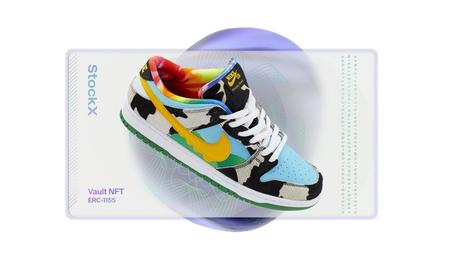
Nike’s ongoing legal battle with online sneaker retailer StockX, called the “Sneaker Wars,” will almost surely have an impact on how intellectual property law is applied to NFTs. Nike filed the case in February 2022, stating that StockX exploited Nike’s famous marks in an unauthorized and infringing way in its Vault NFT collection.
What is StockX all about?
StockX is a sneaker reselling website that was created in 2016. Individuals may sell designer clothing, Pokémon trading cards, Playstation 5 systems, and other items via its subsidiary firm.
As of 2021, the company is worth around $3.8 billion. Its “authenticity guarantee” strategy sets it apart from competitors like eBay. According to court documents, StockX’s multi-step authentication process “ensures that objects sold on StockX correspond to the product descriptions and condition standards stated by StockX, that the products offered for sale are what they claim to be, and are not counterfeit, malfunctioning, or worn.”
When a user buys a pair of shoes from StockX, the seller sends the shoes to one of StockX’s verification centers in the United States or overseas. StockX subsequently provides the “verified” shoes to the buyer, while those that fail the validity test are returned to the seller, absolving StockX of any obligation.
In January 2022, StockX launched its Vault NFT collection, in which each NFT is tied to a real product that StockX sells – in this case, Nike’s Jordan 1 sneaker.
Nike’s ongoing lawsuit against online shoe retailer StockX will likely end up dictating how IP law is applied to NFTs. https://t.co/wYW8juxBIC
— nft now(@nftnow) May 26, 2022
Is it possible that Nike made a mistake?
In its 50-page complaint, Nike clearly states that StockX is minting NFTs that abuse Nike’s brand, benefitting from Nike’s reputation, and misleading customers about “heavily inflated price of unsuspecting clients.”
StockX asserts that its Vault NFTs are neither “virtual things” or “digital footwear,” in contrast to the Hermès International v. Rothschild decision. Rather, each Vault NFT is connected to an actual item that StockX has already confirmed, such as “styles of shows originally made and sold by Nike, Adidas, and Puma.” It also said that the Vault NFT collection is nothing more than a “key” to the vault’s underlying stored object, with no other intrinsic value.
StockX claims “fair use” in response to Nike’s trademark infringement allegations in its March 31 Answer, claiming that this is “no different than major e-commerce retailers and marketplaces who use images and descriptions of products to sell physical sneakers and other goods, which consumers see (and are not confused by) every single day.”
According to The Answer, Nike’s Complaint is nothing more than a “baseless and deceitful attempt” to suppress a new technology that Nike is unfamiliar with, which has established a secondary market for the sale of StockX’s shoes and other commodities.
Like the rule of law at the heart of Hermès, the Lanham Act and the Second Circuit’s Rogers test serve as legal norms that establish the conventional boundaries of intellectual property and trademark infringement. Under Rogers, the use of a trademark in an artistic work is only actionable if the mark (1) has no “artistic importance” to the underlying work or (2) explicitly misleads as to the source or content of the work.
Nike has filed two more lawsuits, one for copying and one for false advertising
Nike amended its original Complaint earlier this month, adding two new claims: counterfeiting and false advertising. Since December 2021, Nike claims to have obtained four pairs of fake Air Jordan 1 Retro High OGs in the black/varsity red-white colorway from StockX’s Vault NFT collection.
In other words, these counterfeit sneakers bore the logo “StockX Verified,” implying that they had passed the company’s unique “authentication guarantee,” which Nike believes is deceptive advertising.
StockX reacted on its website, claiming that it takes “customer safety extremely seriously” and that Nike’s current charges are a “baseless attempt” to “resuscitate its failed legal action.”
Nike’s in-house brand protection team has also praised the company’s authentication program, stating that “hundreds of Nike employees — including current senior executives — use StockX to acquire and sell things.”
What does this mean for non-ferrous transition metals?
The present case tests the connection between a merchant and a manufacturer, bringing fresh issues regarding the types of NFTs that may be created and how a “fair use” argument might be applied. Until recently, it was rare in our sector for a producer to sue a retailer for selling possibly counterfeit goods.
The most analogous instance to Nike’s present fight against StockX is a 2011 class-action lawsuit in which Coach sued a former employee, Gina Kim, who the company said was selling counterfeit Coach bags on eBay (minus the use of NFTs). Tiffany sued eBay again in 2004 for trademark infringement in respect to its alleged cooperation in selling counterfeit Tiffany jewelry. (Again, without using NFTs).
Finally, our courts will have another opportunity to set a legal precedent for how intellectual property applies to NFTs.
Leave this field empty if you're human: